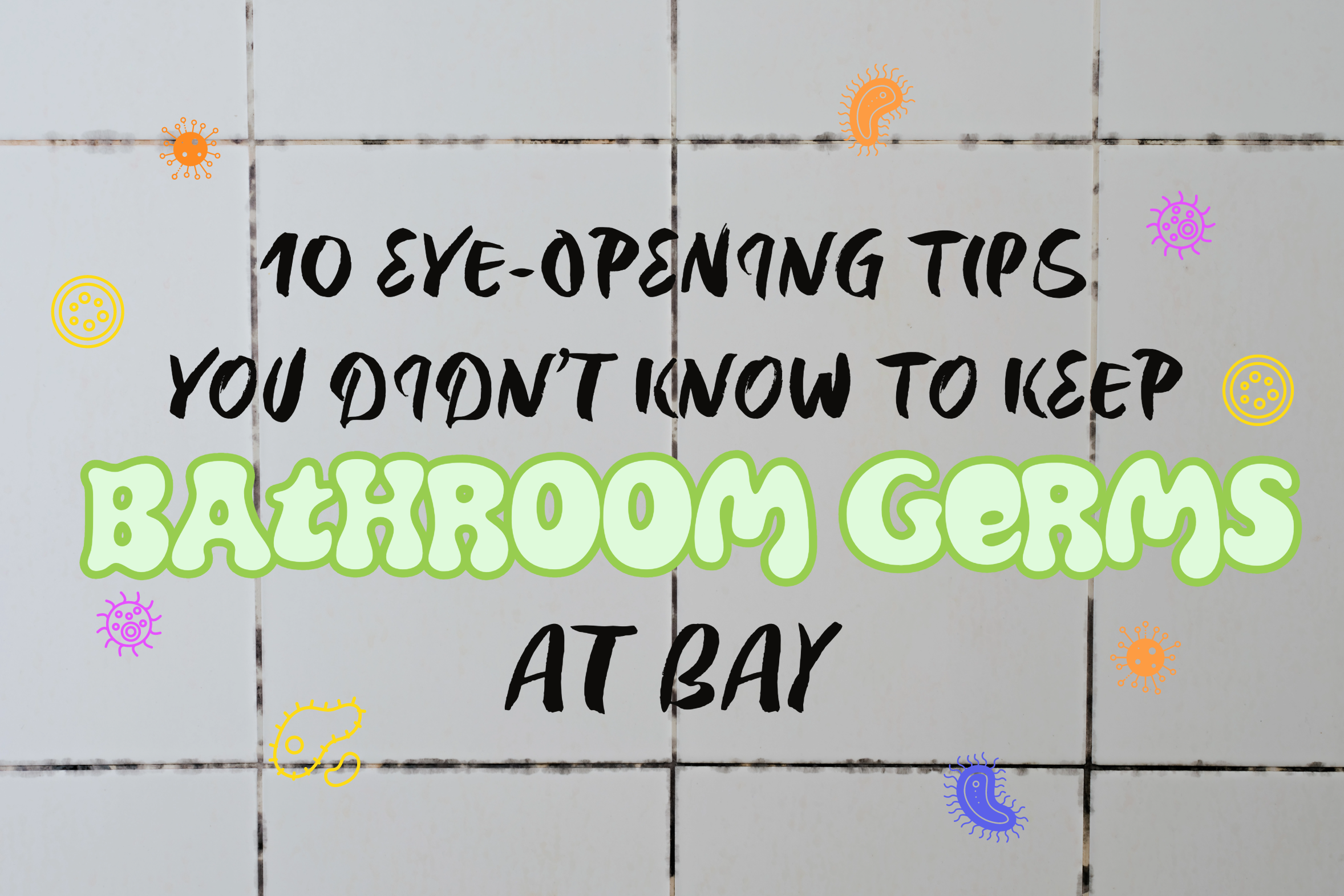We all know bathrooms are a germ’s favorite hangout spot, with their moisture, bacteria, and other airborne microbes contaminating the air and surfaces. In essence, bathrooms are like VIP clubs for germs. Kind of gross, right? Join us today as your trusty Five Star Cincinnati Plumbing professionals spill the beans on ten helpful tips to kick those germs to the curb. We’ll share hygiene practices and sanitary habits that’ll help boost your bathroom hygiene, ultimately keeping those unwanted germs at bay.
What Are the Germiest Spots in Your Bathroom?
Before we get started with our tips, it’s good to know which areas in your bathroom are the MOST prone to germs. These include:
- The toilet seat and the flush handle
- The sink faucet and fixture handles
- The shower curtain and bath mats
- The towels and washcloths
- The countertops and surfaces (most especially around the sinks)
What are the Types of Bacteria Found in Bathrooms?
Now, let’s discuss the types of bacteria commonly found in bathrooms.
- E. coli
- Staphylococcus
- Salmonella
- Influenza virus
- Norovirus
What are the 10 Eye-Opening Tips to Keep Bathroom Germs at Bay?
- Proper Handwashing: We all know how important it is to wash our hands properly. But it can’t hurt to remind everyone in your household about this. Make sure everyone knows the drill: scrubbing their hands with soap and warm water for at least 20 seconds. Following these CDC guidelines for effective handwashing is a basic but significant practice to stop germs from spreading.
- Thorough Bathroom Cleaning: Cleaning the bathroom is not something that many of us love doing. If you haven’t already, try picking a specific day of the week to clean your bathrooms and keep you on track. Having a routine for thorough bathroom cleaning will help you stay on top of it and make sure it gets done. Another thing you can do is keep antibacterial wipes nearby. Quick and easy disinfecting with wipes helps control the spread of germs between your regular cleaning sessions.
- Covered Toothbrushes: Store toothbrushes with covers. This helps prevent airborne bacteria from landing on toothbrushes, which is crucial for maintaining oral hygiene. Factors like being close to the toilet, particles in the air from flushing, and contact with hands can lead to bacterial contamination on your toothbrushes. So, keeping them covered is your best bet!
- Toilet Flushing: To minimize the spread of bacteria, it’s a good idea to close the toilet lid before flushing. This helps keep bacteria contained and prevents those pesky airborne particles from spreading all over the bathroom.
- Touchless Faucet Fixtures: Another helpful thing to do is to minimize surface touching. You can achieve this by installing hands-free faucets with motion sensors. This helps reduce the risk of cross-contamination through surface contact.
- Disinfected Toilet Brushes: Make sure to clean your toilet brush after every use. If you have a disposable brush, that’s great for keeping it free from bacteria. But if not, just aim to clean the toilet brush after each use. To clean the toilet brush, hold it with the bristle end positioned over the toilet. Then, pour hot water and bleach over the bristle. Once done, place the toilet brush handle between the toilet bowl and seat lid to keep it elevated, allowing it to air dry for at least five minutes before returning it to the holder.
- Shower Curtains: To keep your shower space clean and hygienic, make sure to switch out those shower curtains regularly or go for washable fabric shower liners. This helps prevent any yucky bacterial or mold buildup. No one wants that!
- Bidets: Looking for a cleaner alternative than just toilet paper? Bidets are a great option! They’re way better than traditional toilet paper, reducing the risk of germ spread. Plus, they’re affordable and super easy to install yourself!
- Appropriate Bathroom Ventilation: Make sure to ventilate your bathroom properly after each use. Having proper ventilation, like using exhaust fans or opening windows, helps reduce moisture, creating an environment that is less favorable for bacterial growth. Remember, bacteria THRIVE in moisture. So, appropriate ventilation is a must!
- Professional Drain Cleaning: Household drains are like a paradise for bacteria. They love to hang out there, due to all the organic matter, soap scum, and other debris that reside in drains. The solution? That’s what professional drain cleanings are for! Typically, homeowners should have their drains cleaned every 1-2 years, preventing clogs and unwanted bacteria from taking over. Need more info? Give us a call!
By incorporating these tips into your routine, you can keep your bathroom germ-free and greatly reduce the risk of bacteria spreading. Good bathroom hygiene is essential for your health, keeping your home clean, and ensuring your plumbing system runs smoothly.
Call Five Star Cincinnati Plumbing today at (513) 204-9944 or schedule an appointment online now by clicking here!



